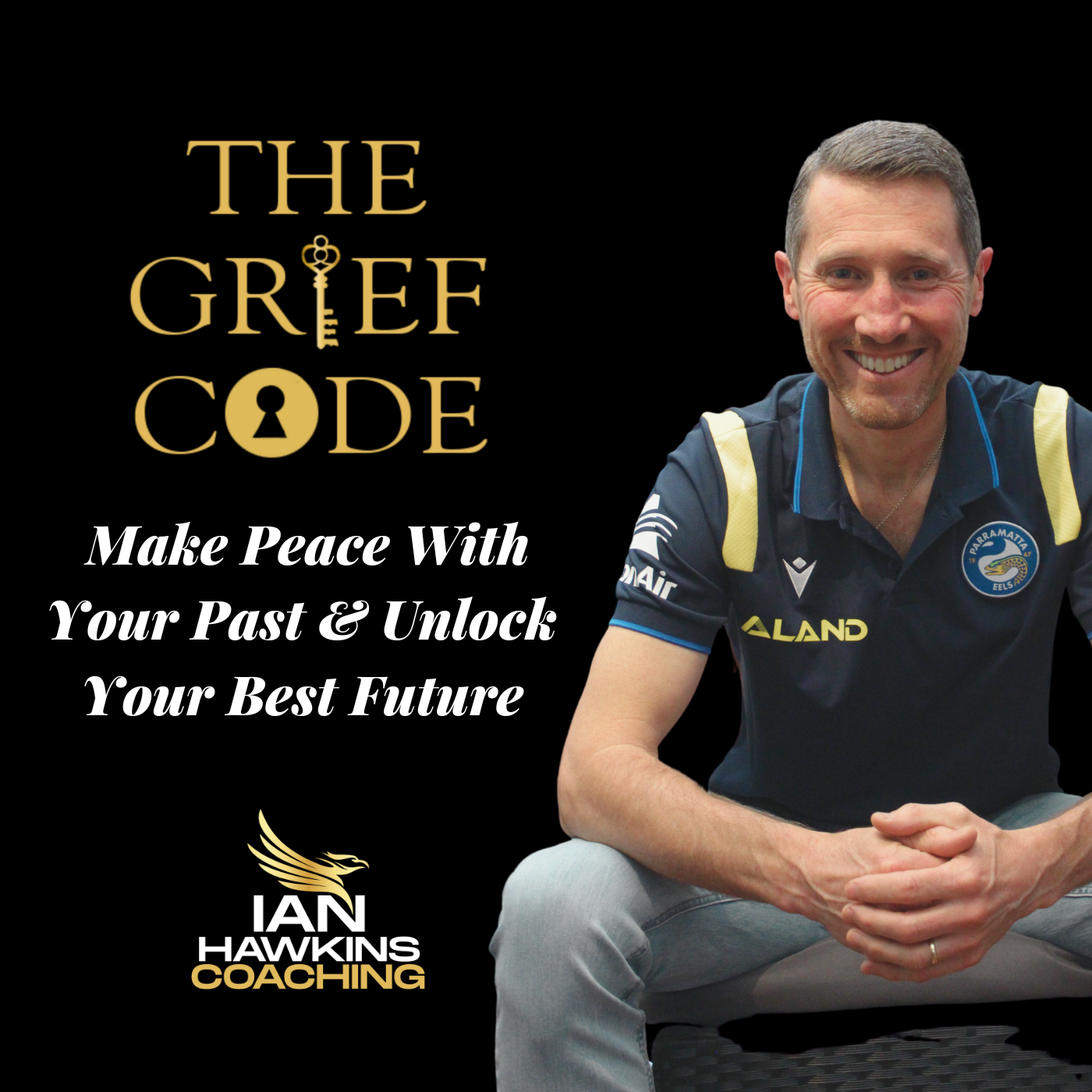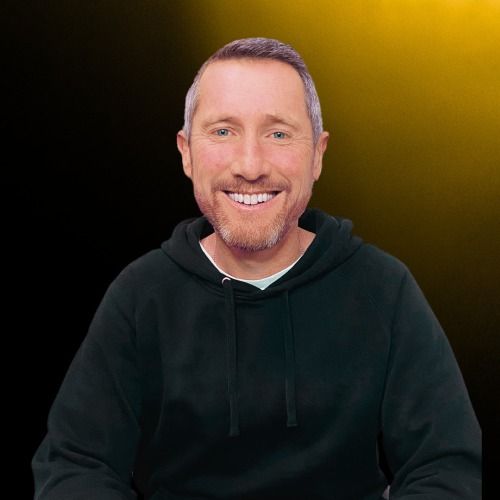Episode 276
Your Best Intentions Are Creating More Disconnect With Your Children
Episode Summary
In this episode, Ian talks about how to specifically negotiate your children's emotions during adolescence.
- How to connect with your children's emotions by putting yourself in their shoes and considering how you would like to be connected with them when you were their age.
- Learn to empathise with them and validate their sentiments about their confidence.
- Understand that they need to feel loved and that you are always there to help. They need to know that you are in the same boat as them in order for you to guide them well.
Heal your unresolved and unknown grief: https://www.ianhawkinscoaching.com/thegriefcode
About the Host:
Ian Hawkins is the Founder and Host of The Grief Code. Dealing with grief firsthand with the passing of his father back in 2005 planted the seed in Ian to discover what personal freedom and legacy truly are. This experience was the start of his journey to healing the unresolved and unknown grief that was negatively impacting every area of his life. Leaning into his own intuition led him to leave corporate and follow his purpose of creating connections for himself and others.
The Grief Code is a divinely guided process that enables every living person to uncover their unresolved and unknown grief and dramatically change their lives and the lives of those they love. Thousands of people have now moved from loss to light following this exact process.
Check Me Out On:
Join The Grief Code Facebook group: https://www.facebook.com/groups/1184680498220541/
Facebook: https://www.facebook.com/ianhawkinscoaching/
Instagram: https://www.instagram.com/ianhawkinscoaching/
LinkedIn: https://www.linkedin.com/in/ianhawkinscoaching/
Start your healing journey with my FREE Start Program https://www.ianhawkinscoaching.com/thestartprogram
I hope you enjoyed this episode of The Grief Coach podcast, thank you so much for listening.
Please share it with a friend or family member that you know would benefit from hearing it too.
If you are truly ready to heal your unresolved or unknown grief, let's chat. Email me at info@ianhawkinscoaching.com.
You can also stay connected with me by joining The Grief Code community at www.ianhawkinscoaching.com/thegriefcode and remember, so that I can help even more people to heal, please subscribe and leave a review on your favourite podcast platform.
Transcript
Ian Hawkins 0:02
Are you ready, ready to release internal pain to find confidence, clarity and direction for your future, to live a life of meaning, fulfillment and contribution to trust your intuition again, but something's been holding you back, you've come to the right place. Welcome. I'm a Ian Hawkins, the host and founder of The Grief Code podcast. Together, let's heal your unresolved or unknown grief by unlocking your grief code. As you tune into each episode, you will receive insight into your own grief, how to eliminate it, and what to do next. Before we start by one request, if any new insights or awareness land with you during this episode, please send me an email at info at the end Hawkins coaching.com. And let me know what you found. I know the power of this word, I love to hear the impact these conversations have. Okay, let's get into it.
So few conversations this week with fellow parents around how to navigate particularly the teenage years. And I passed on what I know from my own experience, and from the people that I've worked with before, when they get to a certain age. They don't want to be told what to do. They don't want to be given advice. They don't want to be fixed. But even more than that, and this is the real clincher is that they actually don't even need comments like I understand I've been through that. That actually leaves them feeling even worse, because they're like, Oh, why can't I get through this. So when we try and empathize with them, we actually end up leaving them feeling worse. And they don't want understanding of why that person may have reacted that way or of what even what they're going through. They're at that point where they distancing themselves from us finding their own way in the world becoming adults over that long period from puberty all the way through to sort of mid 20s, depending on their age, or their age, particularly on their sex and maturity levels. And it's one of the greatest things, but also one of the most challenging things you can do is by letting your and letting it let go of the lead of needing to control because every bit of advice that is not asked for is still control. So the best thing that we can do, and I learned this the hard way, is just offer empathy to the point of even if you can see the solution, and it's smacking you in the face, and you feel like it should be for them. Just go oh, that must really feel whatever. And validate their feelings, and allow them to be heard, allow them to be seen. That's it. Because if you don't, they'll stop talking to you altogether. Or they'll resent the fact that you keep giving them advice, and not really listening to them. And just being there to listen. Now, when you hear this, it might be confronting the maybe even party that doesn't necessarily believe it. And that's fine. It's, it's your choice, like what I've done with my children is giving them choice. Because the more you can give teenagers choice with boundaries, obviously, there are certain boundaries that are required when you live together. But I get so much more from giving them the freedom and being a role model than they do from you. Being directive, controlling, and even well meaning trying to share your experiences when they haven't asked for it. They will ask if they want your help. And the more you can just be there to listen without judgment, validate empathize, the more they will open up and the more they will ask for advice. This is a short term pain for long term gain situation. Like with most things that's sustainable. And so my 15 year old nine year old, there's plenty behaviors about them that I don't love. One thing's for sure, though, is that they know to things that they can make their own choices. And those choices have repercussions and they know that I'll always be there to listen without judgment. And to be able to have a conversation with them about whatever they're going through. And when there is a conversation, I will listen and if they wanted vise, I'll give it to them. And obviously, if it's crossing boundaries, it's like, yeah, okay, that's your choice. This is what this is what it means in this house, if that's the direction you go. So I'm not saying it's easy, but all I'm saying is, is, the more you can give them an ear with minimal guidance, unless they ask for it, the better your relationships going to be. It's, it's counterintuitive. Because there's just such a desire, like when they needed us when they were younger, there's such a desire, to bet to be able to want to give them advice, and teach them. But they're just changing at that age. Be the role model, if you see something, and then that needs to change, then change. Just a really basic one is that our bedroom had become the dumping ground for sort of half finished projects and things that were awaiting on different results. And it's like, Man, this should be our sanctuary. So this is a conversation we started having. Okay, we need to actually do something about this. Well, we did that. And within a week, one of our children, who shall remain nameless, who'd had a similar looking room, suddenly was motivated to change everything. Fascinating, fascinating. And by no means saying that's going to work for you. But it was really interesting to see that the role modeling goes that day. So, as always comes back to you, what can you be doing differently? How can you be a better role model? How can you just be a listening ear? In a world where so often, they just been told what to do and how to live and and instead, just, yeah, hold space for them, let it get it, let them get it all out and let them ease some of their own pain without us having to feel like we need to be in their control. Or that helps.
I hope you enjoyed this episode of The Grief Code podcast. Thank you so much for listening. Please share it with a friend or family member that you know would benefit from hearing it too. If you are truly ready to heal your unresolved or unknown grief, let's chat. Email me at info at Ian Hawkins coaching.com You can also stay connected with me by joining the Grief Code community at Ian Hawkins coaching.com forward slash The Grief Code and remember, so that I can help even more people to heal. Please subscribe and leave a review on your favorite podcast platform

